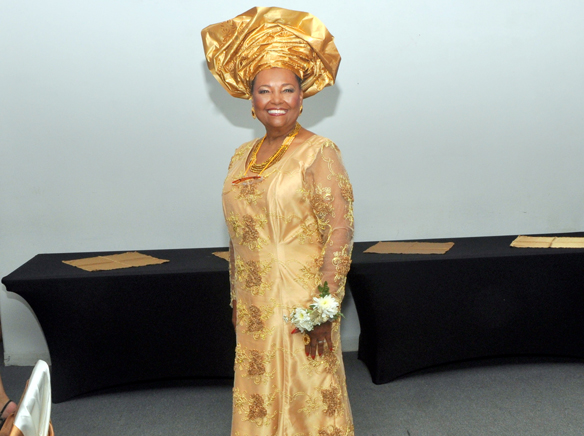Why Black History month?
Why Black History month?
“For people who have been systematically excluded from the mainstream of a society, it is especially important to remember and celebrate those who have won personal victories against the forces arrayed against them”, stated Jonetta B. Cole in answer to the above question. She is past president of Spelman College, a historically black college in Atlanta. In January we celebrated the life and legacy of Dr. Martin Luther King, Jr. and by all measures, as a society, we have included him in the annals of our countries history to honor his deep and profound contributions to our nation and the world.
King’s musical litany often sung in his memory in the old Negro spiritual, “We Shall Overcome Some Day,” was preceded by many important historical black figures. Some are known and others lesser known but each deserving of the places they have earned on the stony road to racial equality.
The American Civil War was the costliest war in American history in terms of the loss of human life and the destruction of property. For black people, it was a war of liberation, a struggle that ended the long nightmare of slavery, even though it did not bring complete freedom. What followed was the erection of new instruments of racial control. In the South, segregation was made legal and ushered in and confirmed for the nation a racial system characterized by separation and inequality. This system denied political rights, an adequate education and economic opportunities to most black Americans and would persist for over a century.
The past marginalization of blacks in the larger American cultural context of history books, public education, journalism, art and negative news reporting, has traditionally meant neglect of their many outstanding achievements. Although the gap is slowly closing with an African American now serving as president, in 1926, Carter G. Woodson launched the first Negro History Week (Now Black History Month) and founded an organization devoted both to the establishment of black history on a sound footing based on research and to the dissemination of historical knowledge about black people.
More recently, in 1966 Dr. Maulana Karanga founded Kwanzaa, the cultural celebration now spread worldwide to reconnect African Americans and those of African descent with their African roots that were severed by slavery and their American history that was not published in books used in the mainstream public education available to most. This seven day celebration between Christmas and New Year’s is based on seven principles: unity; self-determination; collective work and responsibility; cooperative economics; purpose; creativity; and faith. As part of the celebration it introduces to many a widely used language on the African continent, Swahili, as the continent has 54 countries and hundreds of languages and dialects but no common language used throughout.
Our family has celebrated this educational, values based holiday for over 30 years introducing it to friends, neighbors, students, other nationalities and very importantly to the newest members of the community who have come from numerous countries in Africa with varied backgrounds speaking French, Portuguese, Dutch as well as English. From refugees, to the highest officials of independent African nations, it impresses them that time and focus has begun the process of building a bridge between these splintered cultural groups that have been scattered from countries on the continent around the world.
In West Africa, the country of Ghana includes in its traditional Adinkra symbols a Sankofa bird looking back with an object in its beak to illustrate a popular proverb “There is no shame in going back to remember that which was forgotten or to learn that which was never known.” Kwanzaa provides an occasion to make the Sankofa saying a part of an ongoing educational opportunity.
I challenge each of you to Google Carter G. Woodson, Maulana Karenga and Kwanzaa. Add to that list any of those mentioned below and discuss these topics with your children, family friends, and clubs or church group. Today, information is readily available on our computers or at the local library to all who seek it on any given topic. During the month of February, perhaps you can set aside a time to have coffee, tea, Black History and ‘me’. Invite your African American friends to come and share the role they or their family may have played in the struggle for racial equality. If you are of an age, what was your role or what did your own family do during the civil rights struggle? How were you or your community a part of this time in East County’s history?
Our own first family of El Cajon, Joel and Rita Cloud, have much information and may also be Googled along with the late Dr. Charles Thomas, the renowned Father of Black Psychology and Dr. Shirley Thomas, a professor of black studies at San Diego State University who were leaders and highly regarded East County residents.
If there is no struggle, there is no progress. Those who profess to favor freedom, and deprecate agitation, are men who want crops without plowing up the ground, they want rain without thunder and lightning. (Frederick Douglas- early Member of Congress and prolific scholar).
The future belongs to those who prepare for it today (Malcolm X). They, who are not courageous enough to take risks, will accomplish nothing in life (Muhammad Ali). Success is the result of perfection, hard work, learning from failure, loyalty, and persistence (General Colin Powell). How far you go in life depends on your being tender with the young, compassionate with the aged, sympathetic with the striving and tolerant of the weak and strong. Because someday in your life you will have been all of these (George Washington Carver).
The great challenge is to prepare us to enter these doors of opportunity. Light has come in the world, and every person must decide whether they will walk in the light of altruism or the darkness of destructive selfishness. (Dr. Martin Luther King, Jr.).
I submit to you that Black History Month holds an important place in consciousness rising for us all because this history is not part of mainstream education. Until such time it remains very important to set aside a time to focus attention on the many little known outstanding contributions made by African Americans not only in entertainment and sports but in many other walks of life such as science–Bob Countryman, for example a retired forensic chemist, and medicine. Dr. Richard O. Butcher, past president of San Diego County Medical Society who has held many other leadership roles at the state, county and at the national level and who has served at team physician at Granite Hills High School for over 3 decades and continues to do physicals for athletes today.
What does it take to keep King’s dream alive? Dream as only you can dream for you are unique, and then begin the process of doing whatever you dreamed you could do to make East County in reality an inclusive, caring community in which we can all live and thrive together as brothers and sisters today and into our future.
In closing, I ask each of us in our community to meditate, think, dream and tap into the highest and best good inside of us and not let apathy creep into our beings. We must not be lukewarm individuals but we must do something. Be active. Be a part of making King’s dream the part you play in it real and vibrant right here in East County spreading from each individual like a ripple in a stream out into your family, our community, city, county, state, nation and the world.
Vickie Knight Butcher, JD, is the Executive Director, Water for Children Africa, Inc., married to Dr. Richard O. Butcher and raised their children in El Cajon: Richard II, April, Kelley, Langston and Crystal, and five grandchildren. One is currently a student at Granite Hills High School.














